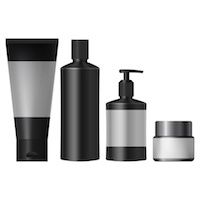Article
OTC Ceramides-Magnesium Cream Scrutinized in Controlled Trial for Eczema
Author(s):
An over-the-counter (OTC) treatment was considered superior to both the corticosteroid and an emollient cream in improving skin hydration.

A non-prescription topical treatment containing ceramides and magnesium was recently found comparable to hydrocortisone in reducing severity of atopic dermatitis (AD) lesions. This over-the-counter (OTC) treatment was actually considered superior to both the corticosteroid and an emollient cream in improving skin hydration.
The findings were from a double-blind, randomized clinical trial design that is more likely to be used to assess investigational agents and new drug applications than the effects of the OTC products.
Thomas Rustemeyer, MD, Department of Dermatology-Allergology, VU University Medical Center, Amsterdam, The Netherlands and colleagues said that while emollients are regarded as basic therapy for mild-to-moderate AD, "their efficacy in randomized controlled trials (RCT) has been insufficiently investigated."
The researchers recruited 100 patients with clinically diagnosed mild-to-moderate AD lesions on both sides of their body, and randomly assigned them to six weeks of treatment with either the ceramides-magnesium (Cer-Mg) (Dermalex Eczema/ Omega Pharma) applied to one side and hydrocortisone to the other, or with Cer-Mg on one side and a "cold cream" emollient on the other.
Results showed primary efficacy was a reduction in AD lesion severity, measured in reduction in the SCORAD (SCORing Atopic Dermatits) scale. The secondary measures were levels of trans-epidermal water loss (TEWL), skin hydration, and natural moisturizing factors.
Though the researchers noted that the double blind, split-body design offered a well-matched comparison between treatments, partially compensating for the heterogeneity of disease severity among patients. The study was supported by the test product manufacturer, but the researchers declared that it was not involved in the study design, implementation, or reporting of results.
Rustemeyer and colleagues explained that the rationale for using Cer-Mg was based on observations that ceramide composition in the stratum corneum becomes altered in AD, and reduced levels and altered composition have been associated with TEWL.
Although a role for magnesium in treating AD is conjecture, bathing in magnesium-rich waters has been described as beneficial for dry atopic skin. In addition, magnesium is involved in synthesis of ceramides, and in the regulation of epidermal proliferation and differentiation.
The choice of the low dose hydrocortisone and an emollient comparator followed from the usage of these products by patients with mild-to-moderate AD. The hydrocortisone was a one percent formulation in petrolatum-cetomacrogol, and the emollient cream was a standardized British Pharmacopeia formulation "cold cream," unguentum leniens. The respective total lipid content was 30% in the Cer-Mg, 75% in the cold cream, and 49% in the hydrocortisone.
After three weeks of treatment, the team discovered that significant reduction from baseline SCORAD measures of lesion severity was found in the hydrocortisone treated sites. At six weeks there was comparable improvement on SCORAD with the Cer-Mg and hydrocortisone, with both superior to the cold cream emollient. The Cer-Mg was found to be the most effective in improving skin hydration and maintaining intrinsic moisturizing factors in the stratum corneum, while the hydrocortisone product was associated with a reduction in moisturizing factors.
"Cer-Mg may therefore offer a non-steroid alternative for the treatment of mild to moderate AD," Rustemeyer and colleagues concluded.
The study, “Efficacy of a Cream Containing Ceramides and Magnesium in the Treatment of Mild to Moderate Atopic Dermatitis: A Randomized, Double-blind, Emollient-and Hydrocortisone-controlled Trial,” was published in the November issue of Acta Dermato-Venereologica.
Related Coverage:
Bathing in the Dead Sea and Other Alternative Therapies for Atopic Dermatitis
Which Emollient Makes Atopic Dermatitis Worse?
Probiotics May Prevent Atopic Dermatitis if Microbiome Cooperates




